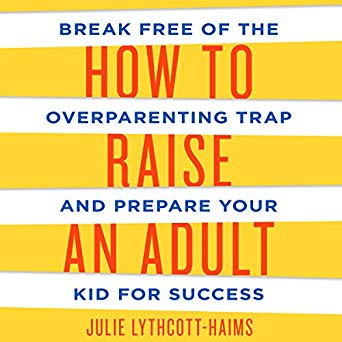 Having a healthy and trusting parent-child relationship during the teenage years is more important than ever. Staying close isn’t easy, though. Here are some tips for navigating the new terrain.
Having a healthy and trusting parent-child relationship during the teenage years is more important than ever. Staying close isn’t easy, though. Here are some tips for navigating the new terrain.
1. Listen. If you are curious about what’s going on in your teen’s life, asking direct questions might not be as effective as simply sitting back and listening. Kids are more likely to be open with their parents if they don’t feel pressured to share information.
2. Validate their feelings. It is often our tendency to try to solve problems for our kids, or downplay their disappointments. But saying something like “She wasn’t right for you anyway” after a romantic disappointment can feel dismissive. Instead, show kids that you understand and empathize by reflecting the comment back: “Wow, that does sound difficult.”
3. Show trust. Teens want to be taken seriously, especially by their parents. Look for ways to show that you trust your teen. Asking him for a favor shows that you rely on him.
4. Don’t be a dictator. You still get to set the rules, but be ready to explain them. While pushing the boundaries is natural for teenagers, hearing your thoughtful explanation about why parties on school nights aren’t allowed will make the rule seem more reasonable.
5. Give praise. Parents tend to praise children more when they are younger, but adolescents need the self-esteem boost just as much. Teenagers might act like they’re too cool to care about what their parents think, but the truth is they still want your approval.
6. Control your emotions. It’s easy for your temper to flare when your teen is being rude, but don’t respond in kind. Remember that you’re the adult and he is less able to control his emotions or think logically when he’s upset. Count to ten or take some deep breaths before responding. If you’re both too upset to talk, hit pause until you’ve had a chance to calm down.
7. Do things together. Talking isn’t the only way to communicate, and during these years it’s great if you can spend time doing things you both enjoy, whether it’s cooking or hiking or going to the movies, without talking about anything personal.
8. Share regular meals. Dinner conversations give every member of the family a chance to check in and talk casually about sports or television or politics. Kids who feel comfortable talking to parents about everyday things are likely to be more open when harder things come up, too.
9. Be observant. It’s normal for kids to go through some changes as they mature, but pay attention if you notice changes to her mood, behavior, energy level, or appetite. She may need your help and it could be a sign she needs to talk to a mental health professional.
Excerpted from “Tips for Communicating With Your Teen” from Child Mind Institute. Read the full post online.
Source: Child Mind Institute | Tips for Communicating With Your Teen, https://childmind.org/article/tips-communicating-with-teen | ©2021 Child Mind Institute, Inc.
House photo created by gpointstudio – www.freepik.com
Do you need someone to talk to? To schedule an evaluation or to get advice about your child’s challenges, call or email a CHC Care Manager at 650.688.3625 or careteam@stage.chconline.org CHC teletherapy services are available now.





